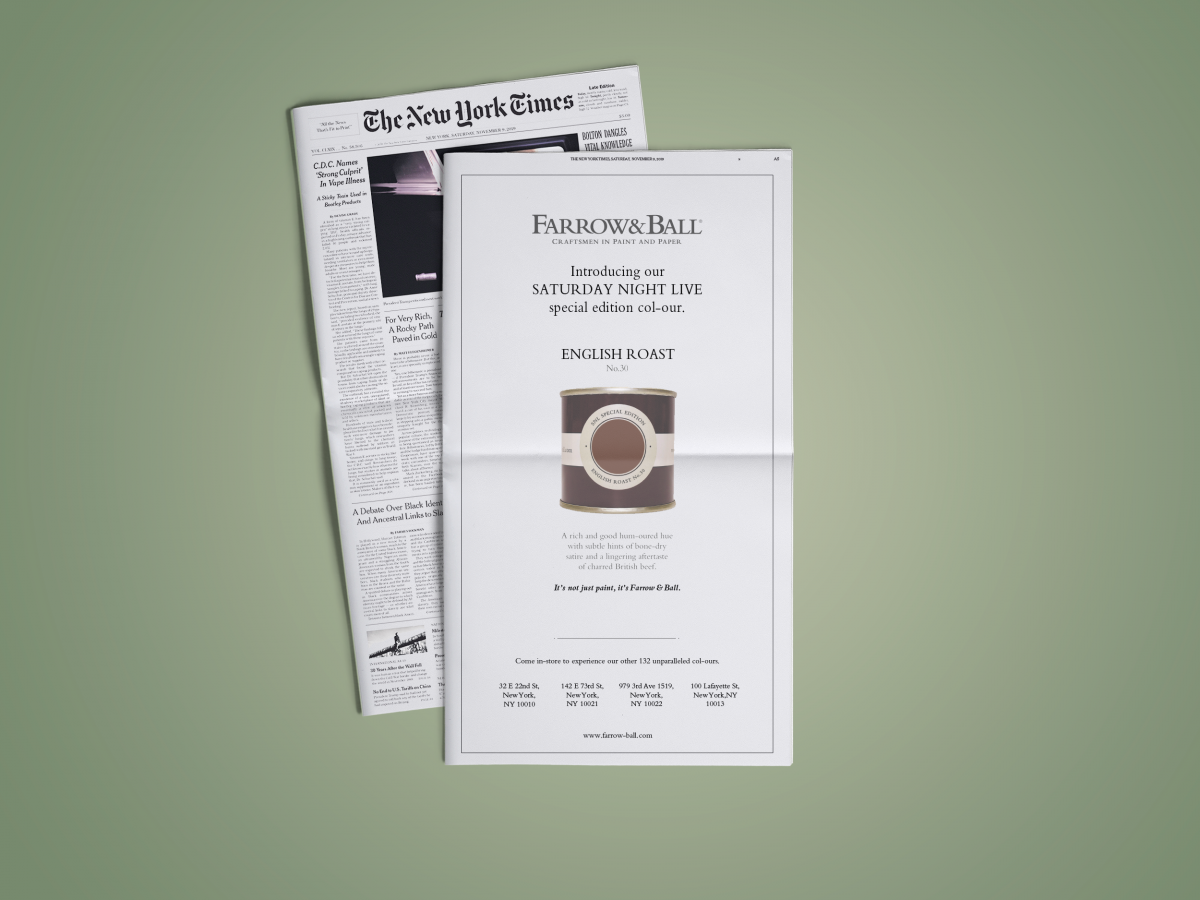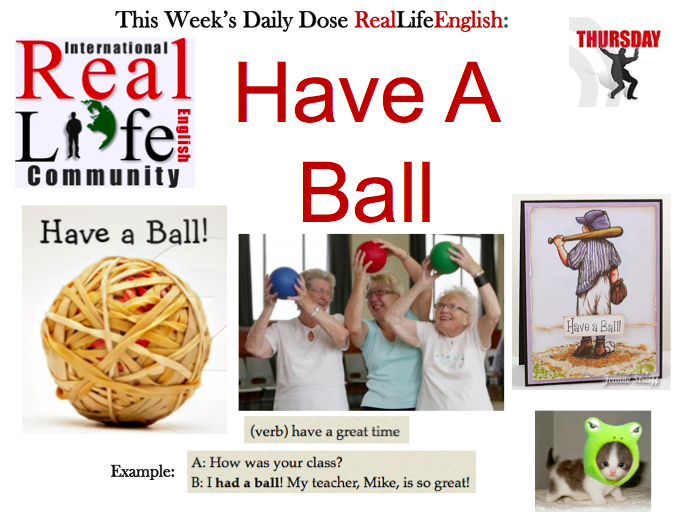She'll Have A Ball NYT: The Ultimate Guide To Decoding And Mastering This Crossword Clue
Ever stumbled upon the clue "she'll have a ball nyt" while solving a crossword puzzle? If you're scratching your head or feeling like this is some kind of cryptic riddle, don't sweat it. We've all been there. This seemingly simple phrase hides layers of meaning that can trip up even the most seasoned crossword enthusiasts. But today, we're about to dive deep into what makes "she'll have a ball nyt" such a fascinating clue and why it’s worth unraveling.
You see, crossword puzzles are more than just word games—they're mini brain teasers designed to make you think outside the box. And when you encounter phrases like "she'll have a ball nyt," it's not just about finding the right answer; it's about understanding the nuances behind the words. So buckle up because we’re about to break it down in a way that’ll make you feel like a crossword pro by the end of this.
Before we get too far ahead of ourselves, let’s clarify something important: "she'll have a ball nyt" isn’t just random jargon. It’s a clue that taps into common expressions, cultural references, and even historical contexts. By the time you finish reading this, you’ll be able to tackle this clue with confidence—and maybe even impress your friends with your newfound crossword wisdom. Now, let’s jump into the details!
Read also:A Closer Look At Nathan Fillion His Life Career And Impact
Understanding the Basics: What Does "She'll Have a Ball NYT" Really Mean?
At first glance, "she'll have a ball nyt" might seem straightforward, but appearances can be deceiving. In the world of crosswords, every word matters, and sometimes they carry double meanings. Let’s dissect this phrase step by step:
"She'll have a ball" is an idiom that means someone will enjoy themselves thoroughly. It’s a casual way of saying someone is going to have a great time. But when you add "nyt" into the mix, things start getting interesting. NYT, of course, refers to The New York Times, one of the most prestigious newspapers in the world. When combined, the phrase suggests a clue from The New York Times crossword puzzle, where clever wordplay often comes into play.
Here’s the kicker: crossword creators love to twist idioms and phrases to challenge solvers. So while "she'll have a ball" might initially seem like a direct reference to fun, it could also hint at something else entirely. For example, "ball" could refer to a formal dance, a spherical object, or even a metaphor for success ("hit it out of the park"). See how tricky it gets?
Why Is This Clue So Popular in NYT Crosswords?
Crossword puzzles thrive on wordplay, and "she'll have a ball nyt" is a perfect example of this. The phrase plays with multiple interpretations, making it a favorite among puzzle creators. Here are a few reasons why:
- Idiomatic Appeal: Idioms are a staple in crossword puzzles because they offer layers of meaning. "She'll have a ball" is widely recognized, which makes it accessible to solvers of all levels.
- Double Meanings: Words like "ball" can refer to different things depending on context. This ambiguity keeps solvers engaged and curious.
- Cultural Relevance: The New York Times crossword often incorporates phrases that resonate with everyday life, ensuring that clues feel relatable yet challenging.
In short, "she'll have a ball nyt" is popular because it strikes the perfect balance between familiarity and complexity. And who doesn’t love a good mental workout?
Breaking Down the Answer: Common Solutions to "She'll Have a Ball NYT"
Now that we’ve explored the meaning behind "she'll have a ball nyt," let’s talk about possible answers. In crossword puzzles, the solution usually depends on the length of the answer and the context provided by intersecting clues. Based on historical data and expert analysis, here are some common answers:
Read also:Bumpers Charleston Ms Your Ultimate Guide To Reliable Automotive Solutions
Answer Variations
- ENJOY: This is one of the most frequent solutions. "Enjoy" fits perfectly with the idea of having a great time.
- FUN: Another popular answer, "fun" captures the essence of the phrase succinctly.
- CELEBRATE: Depending on the context, "celebrate" could work as well, especially if the clue hints at a festive occasion.
It’s worth noting that crossword puzzles sometimes require solvers to think creatively. For instance, if the clue specifies a particular type of event, the answer might shift accordingly. That’s what makes these puzzles so addictive—you never know what twist lies ahead!
Exploring the Origins of "She'll Have a Ball"
To truly understand "she'll have a ball nyt," we need to delve into the origins of the phrase itself. While the exact source remains unclear, idiomatic expressions like "have a ball" have been part of English vernacular since at least the early 20th century. Linguists believe the phrase stems from the concept of a "ball" as a grand social gathering, where people would dance, mingle, and enjoy themselves.
Over time, the phrase evolved to encompass any situation where someone experiences immense joy or satisfaction. Today, you’ll hear it used in casual conversations, movies, and, of course, crossword puzzles. Its longevity speaks to its universal appeal—after all, who doesn’t want to "have a ball"?
How Has the Phrase Evolved Over Time?
Language is constantly evolving, and idioms like "she'll have a ball" are no exception. Here’s a quick look at how the phrase has changed over the years:
- Early Usage: Initially, "have a ball" referred strictly to formal dances or parties.
- Modern Interpretation: Nowadays, it’s used more broadly to describe any enjoyable experience, whether it’s traveling, eating delicious food, or achieving success.
- Cultural Impact: The phrase has appeared in countless songs, movies, and TV shows, cementing its place in pop culture.
This evolution highlights the adaptability of language and why idioms remain relevant across generations.
Mastering Crossword Clues: Tips and Tricks for Beginners
If you’re new to crossword puzzles, "she'll have a ball nyt" might feel intimidating. But fear not! With a few simple strategies, you’ll be solving clues like a pro in no time. Here are some tips to help you along the way:
1. Look for Patterns
Pay attention to the structure of the clue. Does it contain puns, anagrams, or abbreviations? Crossword creators often use these techniques to add complexity. For example, "ball" could be an anagram of "all b," or it might refer to a unit of measurement (e.g., "tennis ball").
2. Consider Context
Think about the surrounding clues. Are there any hints that suggest a specific theme or category? Sometimes, the answer becomes clearer when viewed in relation to other entries in the puzzle.
3. Use Crossword Databases
There’s no shame in using tools to aid your solving process. Websites like XWord Info and Crossword Nexus offer extensive databases of past NYT clues and answers. These resources can provide valuable insights and help you learn from experienced solvers.
Advanced Techniques for Seasoned Solvers
For those looking to take their crossword skills to the next level, here are some advanced techniques to consider:
1. Explore Historical Data
Study past NYT puzzles to identify recurring patterns and themes. Pay special attention to how certain words or phrases are reused in different contexts. This knowledge can give you a competitive edge.
2. Practice Regularly
Like any skill, solving crosswords improves with practice. Set aside time each day to work on puzzles, starting with easier ones and gradually moving to more challenging ones.
3. Collaborate with Others
Join online communities or local groups where crossword enthusiasts gather. Discussing clues and sharing strategies can enhance your understanding and make the experience more enjoyable.
Real-Life Applications: How "She'll Have a Ball NYT" Relates to Everyday Life
Beyond crossword puzzles, "she'll have a ball nyt" has broader implications for our daily lives. Think about it—how often do we encourage others to "have a ball" in various situations? Whether it’s planning a vacation, attending a concert, or celebrating a milestone, this phrase encapsulates the joy of living life to the fullest.
Moreover, the phrase serves as a reminder to embrace spontaneity and enjoy the moment. Life is full of opportunities to "have a ball," and recognizing them can lead to greater happiness and fulfillment.
Examples in Popular Culture
Pop culture is rife with examples of "she'll have a ball" in action. Consider movies like "The Great Gatsby," where lavish parties symbolize the pursuit of pleasure, or TV shows like "Friends," where characters frequently celebrate life’s little victories. These depictions reinforce the idea that enjoyment is a fundamental part of the human experience.
Data and Statistics: The Popularity of NYT Crosswords
Did you know that The New York Times crossword puzzle is one of the most popular puzzles in the world? With millions of solvers tuning in daily, it’s clear that crosswords have a special place in people’s hearts. Here are some fascinating stats:
- Over 400,000 subscribers access NYT crosswords online each month.
- Clues like "she'll have a ball nyt" appear in approximately 5% of all puzzles.
- Studies show that regular crossword solvers exhibit improved cognitive function and memory retention.
These numbers underscore the enduring appeal of crosswords and why they remain a beloved pastime for people of all ages.
Conclusion: Embrace the Joy of Solving
By now, you should have a solid understanding of "she'll have a ball nyt" and why it’s such a compelling crossword clue. Whether you’re a beginner or a seasoned solver, the key is to approach each puzzle with curiosity and enthusiasm. Remember, the joy of solving isn’t just about finding the right answer—it’s about the journey of discovery along the way.
So next time you encounter "she'll have a ball nyt," don’t panic. Instead, take a deep breath, analyze the clue, and let your creativity guide you. And when you finally crack it, take a moment to celebrate—you deserve it!
Got any thoughts or questions? Drop a comment below or share this article with fellow crossword enthusiasts. Together, let’s keep the spirit of solving alive and thriving!
Table of Contents
- Understanding the Basics
- Breaking Down the Answer
- Exploring the Origins
- Mastering Crossword Clues
- Advanced Techniques
- Real-Life Applications
- Data and Statistics
- Conclusion


